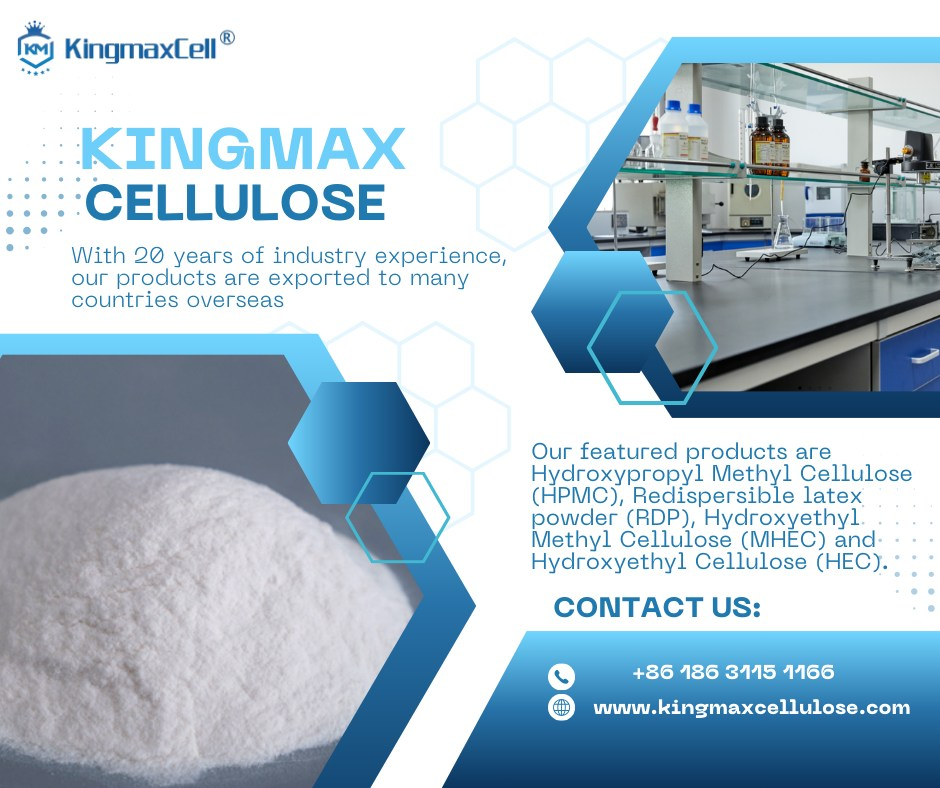Hydroxypropyl Methylcellulose (HPMC) is a versatile cellulose ether used across various industries due to its unique chemical structure and functional properties. It is synthesized from natural cellulose, making it biodegradable and eco-friendly. Here is an overview of the key functional properties of HPMC that make it valuable in construction, pharmaceuticals, food, personal care, and other industries:
1. Water Retention
- Function: HPMC is highly effective at retaining water in various formulations.
- Benefit: In construction materials such as cement-based mortars, plasters, and tile adhesives, HPMC prevents water from evaporating too quickly, ensuring optimal curing and increased strength. In personal care products, it helps maintain moisture in formulations like creams and lotions.
2. Thickening Agent
- Function: HPMC is a powerful thickener that increases the viscosity of solutions or mixtures without changing other properties.
- Benefit: It is used in paints, coatings, and adhesives to enhance consistency and improve application. In food and pharmaceuticals, HPMC ensures a smooth texture and stability in liquid or gel formulations.
3. Film-Forming Ability
- Function: HPMC forms flexible, transparent films upon drying.
- Benefit: In pharmaceutical coatings, it is used to create protective layers around tablets. In construction, its film-forming properties contribute to surface protection and reduce water permeability in coatings and adhesives.
4. Binding Agent
- Function: HPMC provides excellent binding properties, ensuring that materials adhere strongly.
- Benefit: This is critical in tablet formulations where HPMC binds active ingredients, preventing separation. In construction, HPMC helps in bonding between materials like tiles and walls.
5. Rheology Modifier
- Function: HPMC can modify the flow behavior of liquids and pastes.
- Benefit: In paints and coatings, it ensures uniform spreading and prevents dripping. In personal care and cosmetics, it enhances the spreadability of products like lotions and shampoos.
6. Stabilizer
- Function: HPMC stabilizes emulsions and suspensions, preventing phase separation.
- Benefit: In foods, it stabilizes salad dressings, sauces, and dairy products, preventing ingredients from separating. In personal care, it stabilizes creams and gels, ensuring consistent texture.
7. Thermal Gelation
- Function: HPMC exhibits reversible gelation upon heating and returns to a liquid state when cooled.
- Benefit: This unique property is useful in food processing, where HPMC can form heat-resistant gels. It also aids in construction, providing thermal stability in cement and plaster mixes.
8. pH Stability
- Function: HPMC remains stable across a wide pH range, from acidic to alkaline environments.
- Benefit: This stability is important for use in various industries, including pharmaceuticals and construction, where materials are exposed to different pH conditions without degradation of performance.
9. Surface Activity
- Function: HPMC can reduce surface tension, improving wetting and spreading properties.
- Benefit: In coatings and adhesives, this improves surface coverage. In detergents and shampoos, it enhances the spreadability of cleaning agents, improving their overall effectiveness.
10. Non-Ionic Nature
- Function: As a non-ionic polymer, HPMC does not interact with charged particles.
- Benefit: This property makes HPMC compatible with a wide range of other chemicals, making it suitable for complex formulations in pharmaceuticals, cosmetics, and construction materials without risk of undesirable reactions.
Common Applications of HPMC
- Construction: Improves water retention, workability, and adhesion in mortars, plasters, and tile adhesives.
- Pharmaceuticals: Acts as a binder, film former, and controlled-release agent in tablets and capsules.
- Food: Serves as a thickener, stabilizer, and emulsifier in processed foods and beverages.
- Personal Care: Provides thickening, moisture retention, and film-forming properties in creams, lotions, and shampoos.
- Coatings and Paints: Enhances consistency, workability, and leveling properties.


